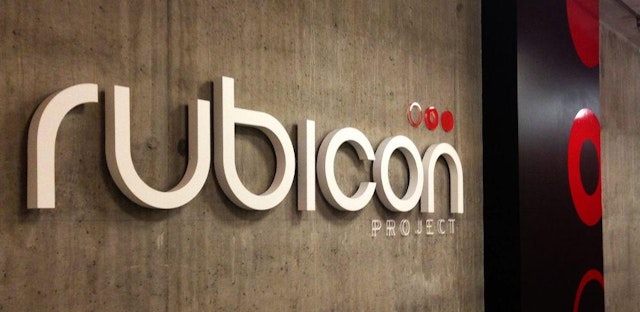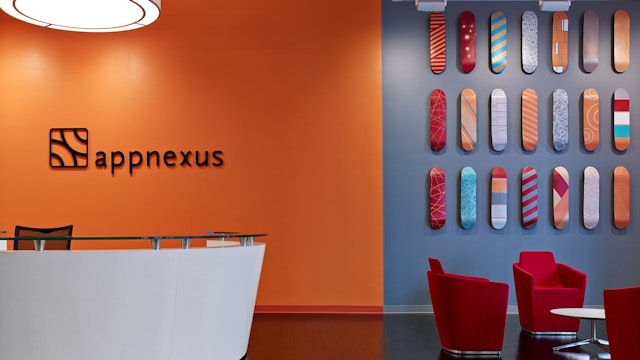AppNexus and Rubicon Project launch Prebid.org hailing open-source approach to header bidding
AppNexus, Pubmatic and Rubicon Project have announced the official launch of Prebid.org, an independent organization aimed towards helping adtech players and premium publishers challenge the dominance of Google’s DoubleClick with an open-source approach to header bidding.
The pairing of AppNexus and Rubicon Project have characterized the approach as a “collaborative industry effort” that will make the marketplace a more fair ecosystem by delivering “unbiased programmatic monetization solutions” for premium publishers.
Participating outfits are set to collaborate by fostering common tech standards and working practices, similar to the Prebid server-to-server solution rollout announced earlier this year.
Prebid.org, will be jointly funded by all participating outfits and requires members of the independent outfit to sign up to a code of conduct containing directives for header bidding mechanics, the handling of data, transparency as well as user experience (see below).

Michael Richardson, AppNexus product line manager, has been named as the outfit’s chairman, and Rubicon Project, tech chief Tom Kershaw as one of its directors, with PubMatic also announced as a participating party at launch.
Each of the players claim this open-source approach will help improve the performance of header bidding solutions for premium publishers. One historic concern over the technology has been that if a publisher’s web page has to process multiple bid requests at once, then it can slow down the time it takes to load.
Many in the industry are keen to point out that growth in the digital advertising market is dominated by Facebook and Google, accounting for 40.7% of US digital advertising revenues in 2017, according to eMarketer.
However, header bidding has been deemed as the biggest disruption to the dominance of Google’s adtech stack DoubleClick – currently the de facto default solution for premium publishers to sell their ad inventory using such tech. This method go doing so is often referred to as a waterfall, but many assert this results in a dynamic that favors Google’s own proprietary technology.
Header bidding, a technology that has been available for some years, but has received a groundswell of support in recent years as an alternative to the waterfall. This has caused such a significant market rapture (Facebook itself has got behind the technology) that the online behemoth has rolled out its own alternative Exchange Bidding in response.

Speaking with The Drum, Prebid.org director Kershaw said the entire rationale of the project was to bring all of the requisite players together in order to prevent complications stemming from fragmentation (many of the concerns around header bidding are around this) and to agree standards.
“There’s no point in having 30 different versions [of a solution] to a problem. It’s got to stop, we’ve learned this on fraud and viewability, so this is the first step towards a standardized approach, hopefully others will now follow,” he added.
Such a fragmented approach can impede the output of even the most advanced technology engineering teams, reducing them to basic systems integration shops, according to Kershaw, thus preventing them from going about their core role of helping publishers monetize their inventory.
“Header bidding is a fundamental, underlying technology to the way adtech is going to work going forward, so we have to agree the standards, and pool our resources. And I think publishers will want to use the solutions chosen by the industry, not [those] owned by an individual company,” he added.
Addressing the historic concerns around header bidding, Kershaw went on to voice his opinion that the lessons learned during the days of client-side header bidding – which resulted in a “clunky user experience” – demonstrate the need for such an approach as it shifts towards server-to-server header bidding.
“On client-side, it slows things down, and the whole industry knows it has to get [the inventory auction] off the page and into the cloud to be efficient, and we have a lot to work on,” he added.

Meanwhile, Prebid.org’s chairman Richardson said the formal establishment of the organization was warranted given that header bidding is now “the default way of working with other companies” among publishers when it comes to monetizing display inventory on desktop and mobile web.
Now as premium media owners seek to use header bidding in order to monetize other media formats, such as in-app, plus video inventory, they will need further tech support, with Prebid.org now on hand to offer this plus best practice guidelines, according to Richardson.
“We’re starting to see the need for header bidding to go everywhere, and it doesn’t make sense for us all [ie every different adtech player] to make disparate efforts whenever we can all work together,” he added.

A release announcing the launch of Prebid.org claims its open-source header bidding solutions are updated on a continuous basis, with up to 191 individuals contributing code to the project, meaning it can better guarantee transparency and accountability.
The launch of Prebid.org as an independent organization does not alter the functionality of existing Prebid products, rather it bolsters support for their development and adoption within the industry, according to the outfit.
Among the products currently contributed to Prebid.org are client-side wrapper solution, Prebid.js, server-side header bidding solution, Prebid Server, as well as Prebid Mobile, Prebid Video, and Prebid Native. The solutions support all device types.
Publishers and ad tech vendors are encouraged to join Prebid.org, to further develop and champion best practices for open-source header bidding. Companies interested in participating should visit prebid.org for additional information.
The release announcing the drive also quotes Evan Simeone, PubMatic, SVP of product (who’s outfit has performed its own research into header bidding recently). He added: “Development in open-source projects is self- correcting for the benefit of the community as opposed to benefiting any one party, as we all should be up front and helpful in addressing our industry’s challenges to move forward.”
Danny Khatib, co-founder of Granite Media, added through the release: “As a publisher, my ability to participate and advocate in the Prebid community gives me confidence in Prebid.org to continue to develop the most effective and transparent solutions for our business.”

